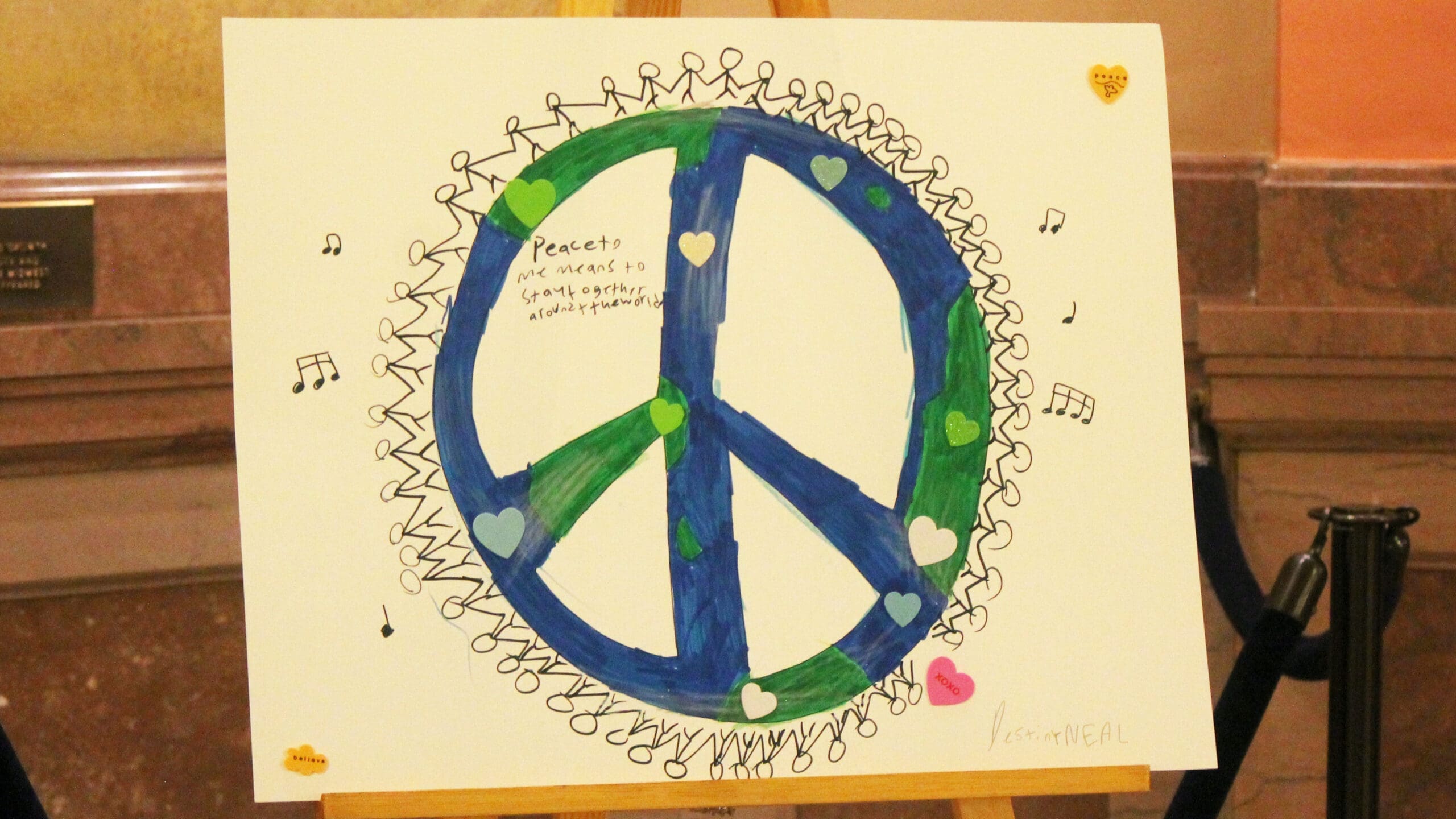A group of about 20 school-age participants demonstrated what peace means to them Friday inside the Kansas Statehouse.
According to the students, who participated in the Topeka Center for Peace and Justice Peace Camp, peace means respecting other people’s boundaries, ending gun violence and supporting kindness. They learned this over their weeklong camp, which focused on finding inner and community peace. They spent time in nature, had a “peace for me” day that was all about self care, and created projects.
Their art was displayed around the first floor of the Statehouse. Campers performed dances they choreographed, and 14-year-old Sophia Ellington sang “Stand Up” by Cynthia Erivo and “Rise Up” by Andra Day.
“You need to stand up for your people,” Ellington said. “And for peace and justice.”
The demonstration happens at the end of peace camp each year, but this was the first time it was held at the Statehouse. Elligton’s voice echoed through the halls, into the rooms where laws are made, carrying lyrics like: “Do you hear freedom calling?”
Executive director and pastor Carl Frazier said he wants lawmakers to worry.
“We want to worry them until they say, ‘OK, I’m going to do this,’ so our future can get better,” Frazier said.
Restorative Justice counselor Regina Platt said one of the ways to get better is creating safe spaces.
“Topeka needs a safe haven for our young people,” Platt said. “There is no need to be turning down the opportunity for young people to come in and connect.”
Frazier and Platt said they want lawmakers to take a look at the laws and regulations that affect youths. Frazier cited California as an example, with its second chance law, which gives people who have been convicted of crimes an opportunity to have their criminal record sealed or expunged.
Fraizer said officials also should be looking at laws that affect people with limited resources — such as those who can’t pay bail.
“Sometimes African Americans and poor people can’t make bail, because a lot of their grandmothers are taking care of them, and all they’ve got is Social Security,” Frazier said “So we’ve got laws that our youth are staying in jail because their parents can not make bail. Those things are terrible.”
Peace Camp was open to any child. But the Topeka Center for Peace and Justice usually works with kids who have “touched the criminal justice system,” Frazier said.
The organization focuses on being a hub for restorative resources: in the community, justice system and schools. It provides resources in the community through events such as peace camp and neighborhood accountability boards, in the justice system with their peace outreach program, parent adolescent mediation and victim/offender mediation, and in the schools by promoting peaceful schools restorative leadership.
One of the main things the Topeka Center for Peace and Justice helps with is mediation in the justice system. Community corrections officers send them referrals, and the center offers trained mediators.
One referral came from a school where a girl had an altercation with the security guard. At first, Frazier wasn’t sure she was going to make it through mediation.
“But at the end, the officer was there, and she hugged him and said she was sorry.” Frazier said. “That means the work we’re doing is touching people. It’s making a difference. And I love it, because I think everyone deserves a second chance.”

Excerpts or more from this article, originally published on Kansas Reflector appear in this post. Republished, with permission, under a Creative Commons License.
See our third-party content disclaimer.




